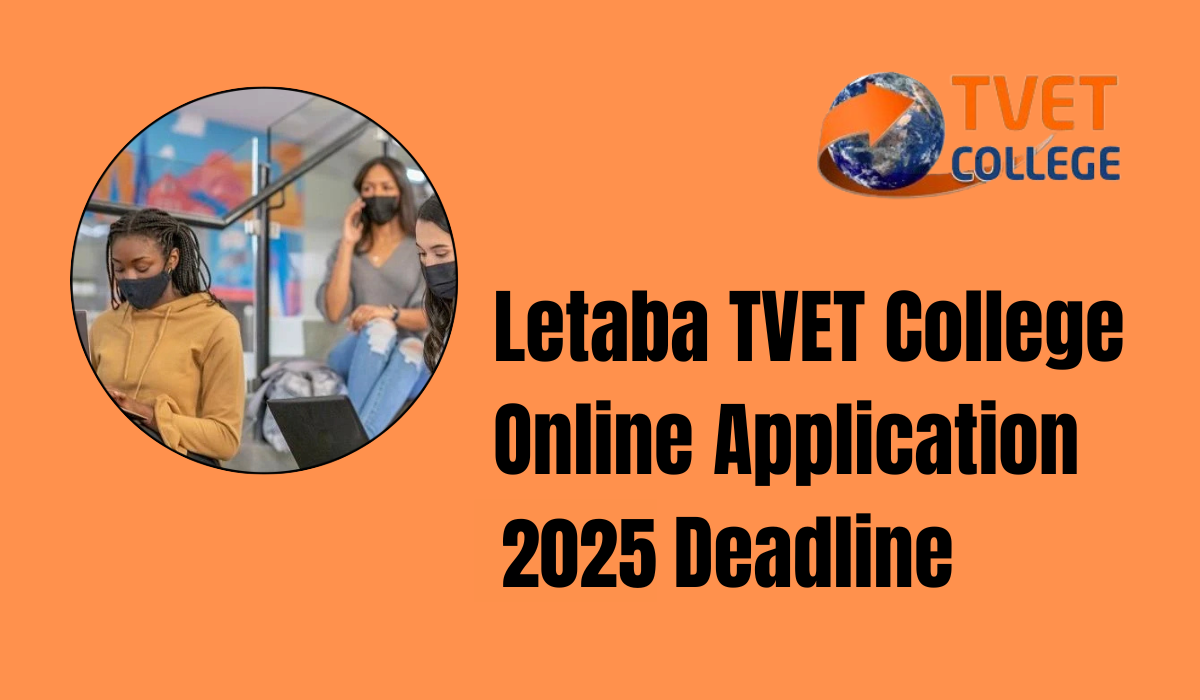Nkabane Champions Digital Skills for SA Youth

Nkabane Champions Digital Skills for SA Youth. In a bold and forward-looking approach to tackling youth unemployment in South Africa, Higher Education and Training Minister Nobuhle Nkabane is championing a series of transformative interventions aimed at equipping young people with in-demand digital skills. Her mission, deeply rooted in strategic partnerships and curriculum innovation, seeks to align the TVET sector with labour market demands and the future of work.
Empowering South African Youth Through Digital Innovation
Minister Nkabane has made it clear that the traditional model of technical and vocational training must evolve. Speaking in a public discussion with former University of Cape Town Vice-Chancellor Professor Mamokgethi Phakeng, she emphasized the urgent need for labour-aligned digital transformation in the post-school education sector.
- Digital skills for SA youth
- TVET colleges
- Artificial intelligence training
- Microsoft NetCampus partnership
- Youth unemployment in South Africa
- Digital skills certification
Addressing South Africa’s Youth Unemployment Crisis
South Africa faces a harsh reality: nearly 3.8 million young people are currently not in education, employment, or training (NEET). For many of these youth, digital skills development could be a lifeline. Minister Nkabane’s department has responded with programs designed not only to train but also to create pathways to employment and entrepreneurship.
“Training for the sake of training is not impactful. It must lead to meaningful work or business opportunities,” Nkabane stated.
This vision is being supported through a flagship presidential initiative in partnership with NetCampus and Microsoft, a move which is seen as a major step toward narrowing the skills gap.
Presidential Digital Skills Initiative
| Component | Details |
|---|---|
| Partners | Microsoft, NetCampus, Business Unity SA, Presidency |
| Launch Date | September 2023 |
| Focus Areas | Digital skills, job placement, entrepreneurship support |
| Initial Rollout | AI courses for principals, deputy principals, and campus senior managers |
| Coordinating Body | Presidency’s Project Management Unit and Business Unity SA |
| Certification Goal | Industry-recognised certifications for students |
Building a Future-Ready TVET Sector
Minister Nkabane envisions TVET colleges as Centres of Specialisation, strategically positioned to offer future-oriented courses such as:
- Artificial Intelligence (AI)
- Robotics
- Mechanical Engineering
- Welding
- Cybersecurity
- Drone Technology
- Cloud Computing
These fields are not just modern additions to the curriculum — they are critical building blocks of the Fourth Industrial Revolution (4IR) in South Africa. The alignment of TVET programmes with labour market intelligence systems ensures that graduates are not left behind in a rapidly changing economy.
Benefits of TVET College Digital Transformation
| Area of Transformation | Impact |
|---|---|
| Curriculum Revamp | New occupational qualifications in tech-driven fields |
| Industry Partnerships | Enhanced credibility and job-readiness of graduates |
| Labour Market Relevance | Courses tailored to current and future employment trends |
| Certification Programs | Internationally and locally recognised certificates |
| Access to Technology | Introduction of Microsoft-supported digital learning platforms |
Artificial Intelligence Training: A Strategic Launchpad
One of the most notable early steps in the rollout of the digital skills agenda has been the introduction of AI training for TVET leaders. Principals, deputy principals, and senior managers across several campuses have already undergone introductory AI courses.
But as Nkabane firmly stated, “This is just the beginning.”
The ultimate goal is to expand the reach of these training programmes to include TVET students, ensuring that they graduate with certifications that boost employability and business acumen.
Digital Skills for Economic Growth and Employment
These interventions are more than academic experiments — they are part of a national strategy to revitalise the economy through digital empowerment. As part of the Business-Government Partnership on Employment and Co-Funding, the programme promotes demand-led skills development that directly contributes to job creation.
Inter-Ministerial Committee on Digital Skills
To drive implementation across multiple sectors, a newly formed Inter-Ministerial Committee (IMC) has been established. Chaired by the Presidency, the IMC includes:
- Minister of Higher Education and Training (Nobuhle Nkabane)
- Minister of Employment and Labour
- Minister of Small Business Development
- Minister of Communications and Digital Technologies
- Industrial Development Corporation (IDC)
“This shows our commitment to tackling digital transformation from all angles, not in silos,” Nkabane emphasised.
The coordinated nature of the IMC is intended to avoid duplication, ensure policy alignment, and maximise impact across departments.
New Qualifications Reflecting the Future of Work
A major milestone in this transformation is the development of more than 50 new occupational qualifications by the Manufacturing, Engineering and Related Services Sector Education Training Authority (merSETA). These were designed in partnership with:
- Industry stakeholders
- The Quality Council for Trades and Occupations (QCTO)
List of Key Qualifications:
| Qualification Title | Relevance to Digital Economy |
|---|---|
| Data Science Technician | Data-driven decision-making and analytics |
| Systems Developer | Software development and integration |
| Robotics Engineering | Automation and industrial efficiency |
| Drone Operations Technician | Smart agriculture and surveillance tech |
| Cybersecurity Specialist | Protection of digital infrastructure |
| Cloud Computing Analyst | Remote work, data access, and storage |
These qualifications are intended to make graduates competitive in both local and global markets.
Challenges and Political Backlash
Despite the minister’s progressive vision, her efforts have not been without controversy. She recently faced criticism from Parliament’s Portfolio Committee on Higher Education and Training after failing to appear before them regarding the controversial appointment of SETA board chairpersons.
Her apology was rejected, with some committee members questioning whether the appointments were politically motivated or involved individuals from within her department.
Although her international travel was reportedly cancelled due to a lack of presidential approval, Nkabane attended a Gender-Based Violence and Femicide (GBVF) event instead — a move that only deepened the controversy.
The committee is expected to further interrogate her on the SETA appointment saga.
Balancing Vision with Accountability
While the digital skills drive under Minister Nkabane’s leadership shows promise, its success hinges on public trust, transparency, and effective delivery. With youth unemployment continuing to pose a national challenge and confidence in public institutions fluctuating, the implementation of these strategies must be both credible and inclusive.
Conclusion
Despite the political challenges, Minister Nkabane remains resolute in her mission: to empower, employ, and elevate South African youth through digital skills development, industry-relevant training, and strategic partnerships.












